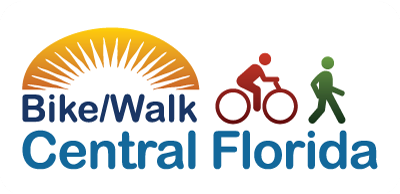Our partners at the City of Orlando are working hard to make sure that our streets get the attention they deserve. That’s why the city is working to resurrect their transportation department, with “an eye toward the future of the commuter rail system, as well as the city’s efforts to become more pedestrian-friendly,” according to an article from the Orlando Sentinel.
BWCF founding chair Linda Chapin said it best: “It means a lot to me that both the city and the county are now beginning to really focus on the idea of safe streets, of the livable city, of the amenities that matter to real people.”
Check out the full story below.
Orlando hopes to stay ahead of transit issues with new department
Jeff Weiner, Orlando Sentinel
From SunRail to I-4 Ultimate, Orlando is the epicenter for major projects that are changing the way Central Florida residents will get around town in the years to come.
That’s why the city is launching a new transportation department that’s expected to debut next fiscal year with a $45 million budget.
Byron Brooks, the city’s chief administrative officer, recommended the new department after Mayor Buddy Dyer told him to figure out how best to deploy the city’s transit resources.
After that review, “it just became apparent that there’s even more … urgency related to transportation [now] because transit is clearly a much more prominent player than it was several years ago,” Brooks said.
Orlando had a transportation department from 2006 through 2011, when the city was knee-deep in planning for SunRail’s launch and the Interstate 4 revamp. Brooks said it was disbanded once those and other goals were completed.
It’s being resurrected, Brooks said, with an eye toward the future of the commuter rail system, as well as the city’s efforts to become more pedestrian-friendly.
SunRail’s expansion plans — the 17-mile southern leg recently began construction, and a spur linking to Orlando International Airport is also planned — were only part of the impetus for the new department.
A major transition also looms on the horizon. The Florida Department of Transportation operates SunRail, which ran a $27.2 million deficit in its first year, but only agreed to do so for seven years.
Local governments, including Orlando and Orange, Seminole, Osceola and Volusia counties, will take the reins and the expense in 2021. Sales or gas tax increases have been floated by local leaders to cover future SunRail costs, as has the possibility of using toll-road revenues.
Though the train system only had its second birthday in May, city officials are already thinking about the hand-over.
“We’re at that point, as a region, of having to decide on the transition of SunRail from FDOT to some operating structure … We need to have some focus, some attention,” Brooks said.
Other priorities identified for the new department include the city’s “complete streets” initiative, which aims to make Orlando’s roads more bike and walk friendly, and efforts to improve the city’s trail system.
Linda Chapin, a former Orange County mayor and board member of Bike/Walk Central Florida, said such efforts are welcome and long overdue.
“It means a lot to me that both the city and the county are now beginning to really focus on the idea of safe streets, of the livable city, of the amenities that matter to real people,” she said.
Brooks also mentioned several goals laid out by Project DTO, the city’s recent downtown planning sessions, including the “bridge district,” which would install parks and a playground under I-4.
Dyer highlighted the new department during his budget address to the City Council last week. He presented commissioners with a $1.17 billion budget for the 2016-17 fiscal year.
“Our transportation infrastructure is what’s going to allow our city to handle the dramatic rise in population we expect to see in the coming years and decades,” Dyer said.
City officials stressed that the new department’s budget and staff will mostly come from existing departments. Of its 168 staffers, 149 are being reassigned from public works and another 18 from economic development.
Only one new position would be created: the department’s director, who hasn’t been hired yet. The job is expected to pay about $140,000, a city spokeswoman said.
Brooks said the shift will give staffers more specific priorities.
“Our public works folks have such a focus on paving streets and addressing stormwater needs and wastewater needs that some of the long-term big picture … may not get quite the attention that we wanted to devote,” Brooks said.
The new department would be one of the city’s smallest, accounting for about 5 percent of city staff in the coming fiscal year and less than 4 percent of Orlando’s overall expenses.
The budget, including the new transportation department, is not yet final. Before the City Council votes, there will be a pair of public hearings at City Hall, scheduled for the evenings of Sept. 15 and 26.
jeweiner@orlandosentinel.com or 407-420-5171

